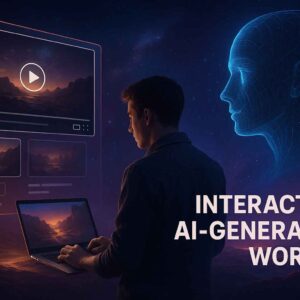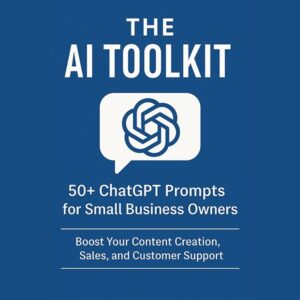Why Meta’s $100 Million AI Talent Poaching Spree Matters
Imagine spending $100 million to hire one person—not a soccer star, but an AI researcher responsible for groundbreaking technology that’s shaping the future. This is exactly what Meta is doing as it assembles a powerhouse team to build “super intelligence.”
The core idea? Meta is aggressively recruiting the brightest minds behind GPT-4 and other AI breakthroughs from competitors like OpenAI to leapfrog in the AI race. This isn’t just corporate one-upmanship; it’s a high-stakes bet on building the smartest AI system in the world with unprecedented resources and expertise.
This insight comes from an insightful video analysis shared recently, revealing Meta’s bold strategy and the talent behind today’s AI revolution.
—
What Does Meta’s AI Talent Shopping Spree Reveal?
How much is AI talent worth?
Talented AI researchers are now being valued more than some sports superstars. The meme comparing soccer legend Ronaldo’s €80 million transfer to Meta’s rumored $100 million payment to Jiau Yu, a key player in building GPT-4, perfectly captures this new era. Meta’s willingness to invest so heavily signals how critical these individuals are in pushing AI boundaries.
Who exactly is Meta hiring?
Meta’s new “Super Intelligence Labs” isn’t just a PR stunt. It’s stocked with pioneers like Shangja Zhao, co-creator of ChatGPT, Hoyen Chang, who engineered GPT-4’s image generation, and Rapid Bansil, known for innovations in chain-of-thought reasoning — the step-by-step logical process that makes AI less of a black box.
Why now and why Meta?
Unlike OpenAI and Google, Meta felt like the laggard in AI. While others seized headlines with flashy demos, Meta played catch-up. Money talks: Zuckerberg is directly channeling his resources to snatch top talent away, sending a clear message — Meta intends to be the leader, not the follower.
—
The Real Stakes Behind AI Talent Wars
What’s at risk?
AI is no longer just a technological footnote; it’s the foundation of future industries, economies, and societies. Whoever builds the smartest AI will wield massive influence over search engines, virtual assistants, content creation, and more.
The competition isn’t just about bragging rights — it’s about setting standards, controlling platforms, and shaping ethical frameworks.
Will putting all geniuses in one room work?
Teams of brilliant minds with unlimited resources sound like a formula for magic. Yet it’s uncharted territory — combining diverse AI pioneers who previously worked at competing organizations could spark unprecedented innovation or cultural clashes. How Meta manages this fusion will be fascinating to watch.
What does this mean for other AI players?
Other companies might respond with their own talent poaching or innovation pushes. The AI ecosystem could become a whirlwind of collaboration and competition.
—
Frequently Asked Questions
Why is AI talent shifting between companies?
Because AI breakthroughs require vast expertise, companies bid aggressively for top researchers to build competitive advantages and fast-track innovation.
What is chain-of-thought reasoning in AI?
It’s an approach that helps AI systems reason step-by-step, improving problem-solving and making AI decisions more transparent.
How does Meta’s approach differ from OpenAI or Google?
Meta is investing heavily in assembling an all-star team under one roof rather than relying mainly on incremental improvements or open collaboration.
—
Building super intelligence isn’t about a silver bullet; it’s about creating an environment where the best minds can invent, challenge, and advance AI together. As Meta opens its wallet and arms itself with top talent, the AI landscape is entering a thrilling new chapter.
For those intrigued by AI’s ethical and societal impact, See more AI news and ethics topics.
Who will win the race? Only time and genius will tell.
Video insights adapted from a recent, engaging analysis of Meta’s AI talent strategy.
FAQ
Q1: What is this article about?
It explores Meta’s aggressive hiring of top AI researchers from competitors like OpenAI to build a leading super intelligence platform.
Q2: Why is this important?
Meta is betting millions on talent to dominate AI innovation, signaling a high-stakes race that will shape the future of technology.
Q3: Can assembling a team of top AI minds really speed up innovation?
Yes, concentrating expertise and resources in one place fosters collaboration that can lead to breakthroughs faster than fragmented efforts.
📢 Want more insights like this? Explore more trending topics.



